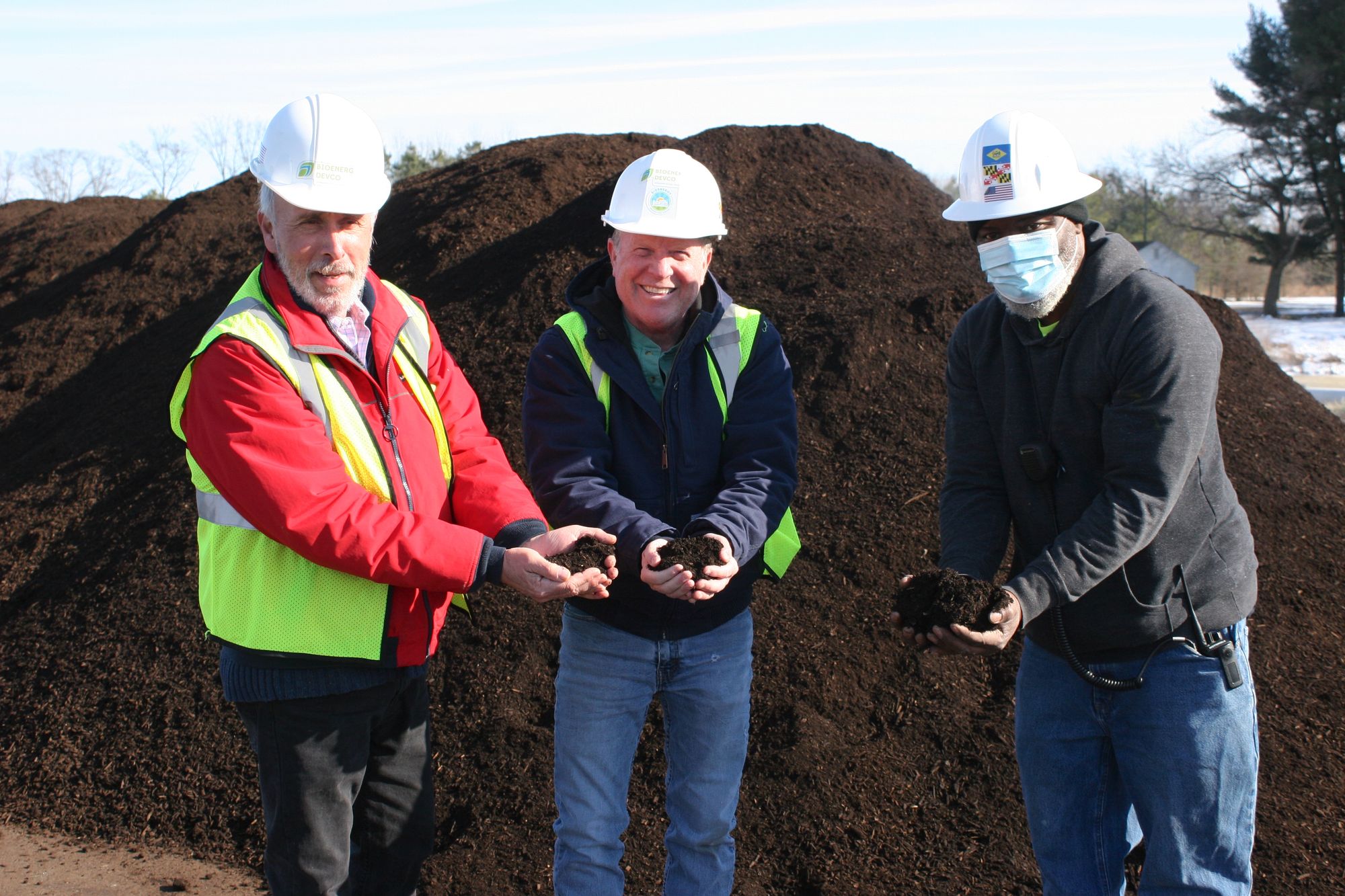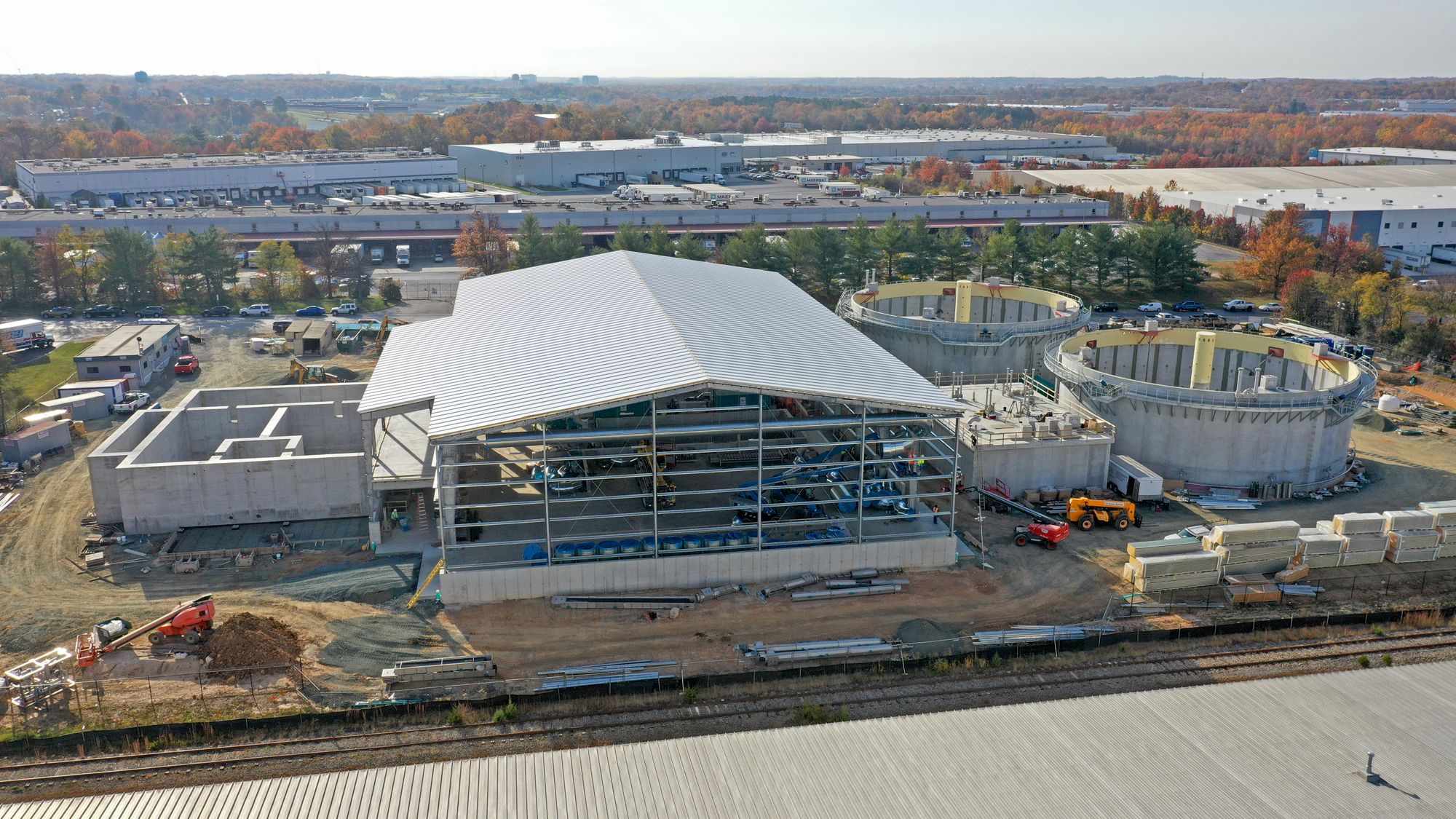Proposal would truck natural gas to Bridgeville site near school

A gas company is taking early steps in a plan that would ship natural gas by truck to an existing pipeline site near Phillis Wheatley Elementary School in Bridgeville.
Eastern Shore Natural Gas Company, a subsidiary of Chesapeake Utilities, currently runs a facility on the property that compresses natural gas to give it the pressure needed to send it on to other locations via pipeline.
The company wants permission to also transport natural gas to the site by truck and add it to the pipeline. Documents submitted to Sussex County say it will be “non-traditional gas supply, such as renewable natural gas, compressed natural gas, or liquefied natural gas.”
The site is off Emma Jane Lane, just south of Newton Road. The company’s land is adjacent to the back part of the school’s property that contains a playground, although the proposed facility would be at some distance from the property line toward the other side of the property.
The Sussex County Planning and Zoning Commission held a hearing on the proposal Thursday night. That’s because the land is zoned agricultural-residential, and the company needs what’s called a conditional use approval to add this project to the site. Conditional uses are not forbidden by the zoning but fall outside the automatically allowed use and are subject to conditions from officials.
Conditional permitted uses on this type of land include “public utilities or public service uses, buildings, generating or treatment plants, pumping or regulator stations or substations.” The company already has a conditional use approval for its existing site.
The request has drawn the notice of groups like Food and Water Watch, the Sierra Club of Delaware and others, who oppose allowing Eastern Shore Natural Gas to use the property to add natural gas to the pipeline. Several of their representatives attended the hearing and raised a number of objections Thursday.
They raised concerns including the danger of explosions near the elementary school, traffic, noise levels, and racial justice issues given the fact that the neighborhood has a lot of residents who are minorities. They asked whether the community or school have been made aware of the plans. Some of the groups also oppose carbon-based fuels and object to a project increasing natural gas capabilities. They are against plans for a new biogas plant near Seaford and think this development might be related to that project.
Mark Parker, engineering manager for Eastern Shore Natural Gas, said they do not know who their shippers would be yet.
“If they (Bioenergy Devco) end up opening that unit, we could be a potential receipt point for them, but we’re not basing this project strictly on them,” he said.
Maria Payan, a local environmental advocate speaking for the Sussex Health and Environmental Network, said the company’s application was too vague, especially for a project like this near a school.
Greg Layton, with Food and Water Watch, also questioned the company’s assurances that an explosion impact would not reach beyond the property, given that there’s a school nearby.
“I’m not willing to take an optimistic view of it,” he said.
He also said the site would “entrench factory farm gas infrastructure in Sussex County for decades to come.”
Parker said there are always concerns about these kinds of facilities, and that’s natural. If there was a catastrophic failure of the pipeline, he said, the impact radius would be around 200 feet – calculating for a 10-inch pipe at 800 pounds of pressure.
“Nothing would actually leave the property limits,” he said.
The company is still working on getting approvals it needs including at the federal level, Parker said, but they like to start at the local level.
The new structures, he said, would be similar and actually smaller in scale to what exists, and argued that the use is in line with the general land use for the area, with its rail and commercial and industrial facilities. (The company is not proposing using rail for natural gas at this time, he said.)
The trucks would come in from the north to keep them out of residential areas and away from the school, Parker said. They use the road in a way that’s mindful of safety, he said, “no different than a gas truck going to deliver to the Exxon station or to Wawa.”
He said there would be a maximum of 18 trucks a day.
Commissioner Kim Hoey Stevenson asked Parker if the company would agree to a condition that trucks would not go by the school, and he said they would “very willingly.”
Stevenson also asked about an emergency plan because of the nearby school. Parker did not know if there was a plan already in place for the current site.
“We’re certainly willing to put a safety plan in place, that is our pleasure to do so,” he said. As far as talking to the community about the project, he said part of the application process would be to notify the public within a 1-mile radius, and if a public hearing were to be required, they would hold one.
Natural gas explosions do happen, but they often seem to involve accidents at homes or because of construction work, like contractors digging into lines. A 2015 article in the Atlantic noted that on average, the United States lost 17 people a year to leaks and explosions involving natural-gas pipelines – as compared to say, lightning strikes (about 26 deaths) or falling out of bed (about 450 deaths). If you’re interested in learning more about the risks from natural gas infrastructure, the Indianapolis Star did an in-depth review in this article.
R. Keller Hopkins, one of the commissioners, noted that there’s already significantly more truck traffic in the area than that proposed by Eastern Shore Natural Gas.
“I want to make sure we get perspective of what we have here,” he said.
Of the location, Parker said, “We’re trying to utilize the existing parcel. Pipelines are in place,” as opposed to running new pipeline and disrupting other areas.
The Commission has not yet decided on the project. It will make a recommendation at a future meeting, which it will then send to County Council for a final decision.
Find the documents the company submitted here.
Hear all the testimony here, starting at hour 2:29 (the whole meeting went more than four hours, for those of you who might be tempted to attend one).
More stories:



